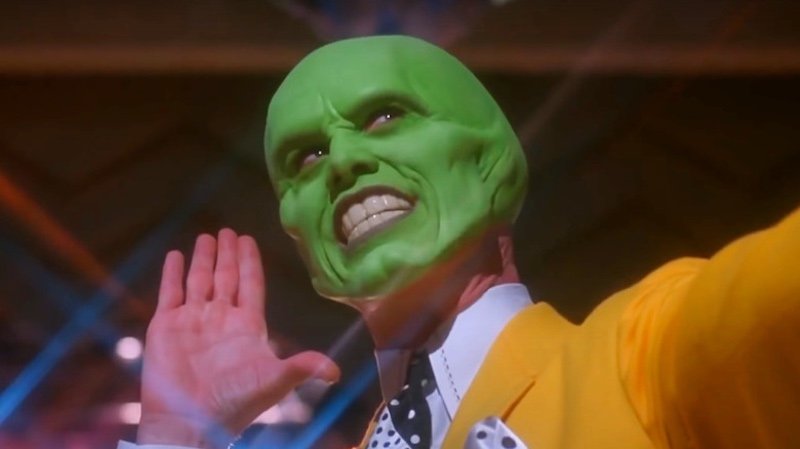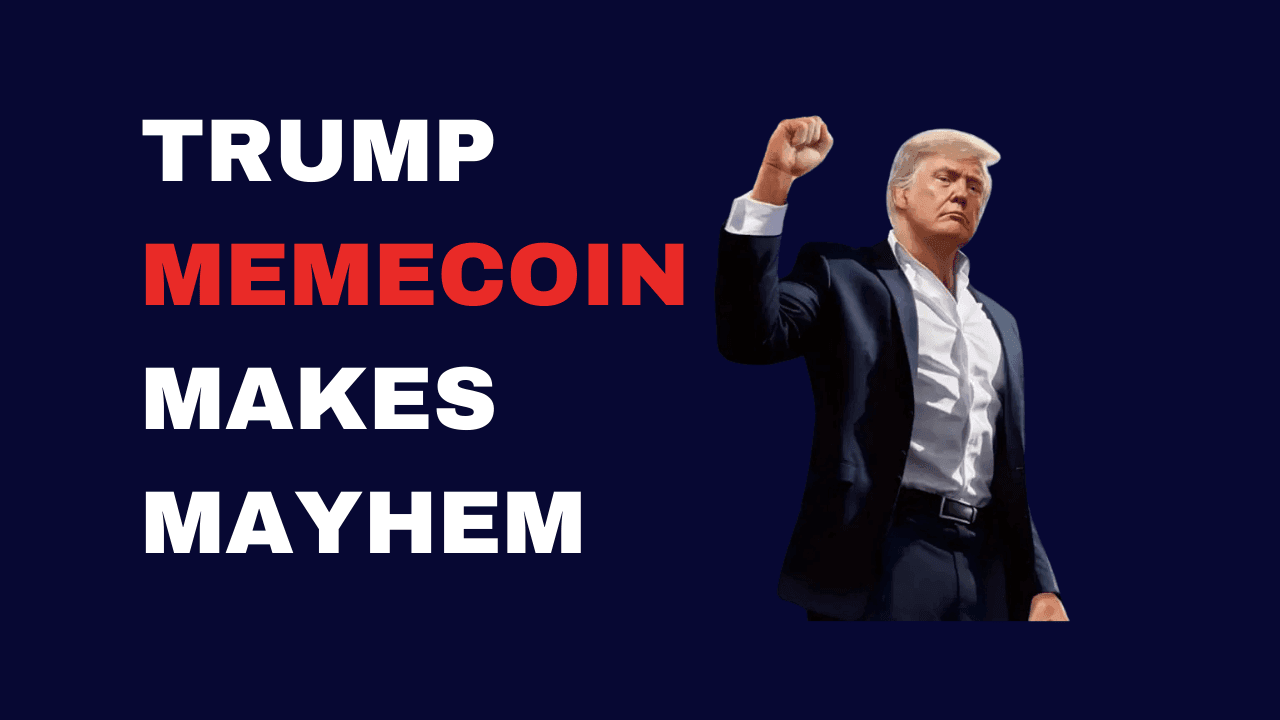Introduction: What is the Mandela Effect?
Have you ever been absolutely certain of a fact, only to discover that your memory of it was completely wrong? Welcome to the Mandela Effect—a phenomenon where large groups of people remember something differently than how it occurred. Named after Nelson Mandela, the phenomenon gained traction when many people mistakenly remembered him dying in prison in the 1980s, even though he was released in 1990 and passed away in 2013.
The Mandela Effect raises intriguing questions about the reliability of our memories, the nature of reality, and the possibility of parallel universes. In this blog post, we’ll dive into the top 8 Mandela Effects that have left millions of people questioning their own recollections.
1. “Luke, I am your father.” — The Star Wars Misquote
One of the most famous examples of the Mandela Effect involves an iconic line from the 1980 classic Star Wars: The Empire Strikes Back. Many people distinctly remember Darth Vader saying, “Luke, I am your father.” However, the actual line in the movie is, “No, I am your father.”
This misquote has been repeated countless times in pop culture, from TV shows to parodies, reinforcing the incorrect version in our collective memory. Despite the overwhelming evidence from the movie itself, many still insist on the misremembered version, leading to endless debates among fans.
Why It Happens: This particular Mandela Effect may occur because the incorrect version of the line provides more context. By including Luke’s name, it’s clearer who the line is directed at, making it more memorable in our minds.
2. The Berenstain Bears vs. The Berenstein Bears
For many who grew up reading the beloved children’s book series about a family of bears, the Berenstain Bears, this Mandela Effect is particularly jarring. A significant number of people remember the name being spelled as “Berenstein” with an “e” instead of “Berenstain” with an “a.”

This discrepancy has led to a host of theories, including the possibility of alternate realities where the bears were indeed called “Berenstein.” The correct spelling, however, has always been “Berenstain,” named after the creators, Stan and Jan Berenstain.
Why It Happens: The confusion likely stems from the fact that “stein” is a much more common suffix in names, leading to an assumption that it’s the correct spelling. Additionally, the phonetic similarity between “stein” and “stain” makes the misremembering even easier.
3. “Mirror, Mirror on the Wall” — The Snow White Misquote
Another classic Mandela Effect involves a famous line from Disney’s 1937 animated film Snow White and the Seven Dwarfs. Many people remember the Evil Queen saying, “Mirror, mirror on the wall, who is the fairest of them all?” However, the actual line is, “Magic mirror on the wall, who is the fairest one of all?”
This misquote has permeated popular culture to such an extent that the incorrect version is often taken as fact, despite being proven otherwise.
Why It Happens: Over time, the phrase “mirror, mirror” has been passed down through various adaptations, parodies, and retellings, reinforcing the incorrect version. The alliteration of “mirror, mirror” may also make it more memorable and easier to misquote.
4. The Monopoly Man and His Monocle
When you think of the Monopoly board game, you likely picture the Monopoly Man, also known as Rich Uncle Pennybags, with a top hat, a mustache, and a monocle. Except, he never had a monocle.
This Mandela Effect has left many people scratching their heads, swearing they remember the Monopoly Man wearing a monocle. In reality, this detail never existed, and images from the game’s history confirm this.

Why It Happens: The misconception may stem from the resemblance between the Monopoly Man and other iconic characters who do wear monocles, such as Mr. Peanut, the Planters mascot. Our brains may have conflated these images over time, leading to a false memory.
Interestingly, this false memory might have been further reinforced by a scene in Jim Carrey’s movie Ace Ventura: When Nature Calls (1995), where Carrey’s character humorously addresses a man with a monocle as “You must be the Monopoly guy!” This pop culture moment has likely contributed to the collective misremembering of the Monopoly Man having a monocle.
5. The Sinbad Genie Movie That Never Existed
One of the most perplexing and widely discussed Mandela Effects involves a movie from the 1990s that thousands of people distinctly remember watching, but which never actually existed. This supposed movie, titled Shazaam, featured comedian Sinbad as a bumbling genie who helped two children navigate various challenges.

Despite the vivid and detailed memories shared by countless individuals—including recollections of specific scenes, the movie’s cover, and even plot points—Shazaam has never existed. Sinbad himself has confirmed that he never starred in a genie movie. The fact that so many people, independently of one another and without prior exposure to Mandela Effect discussions, recall this movie with such certainty has only deepened the mystery.
Why It Happens: This collective false memory is particularly intriguing because it seems to have formed organically across a large group of people. Some have speculated that memories of Sinbad’s other comedic roles, along with the 1996 movie Kazaam starring Shaquille O’Neal as a genie, have somehow merged in people’s minds.
However, it’s foolish to conclude that people are simply confusing Shaq and Sinbad—two individuals who look nothing alike. This adds to the perplexity of the Mandela Effect, leading some to theorize that this could be evidence of a glitch in reality or the existence of alternate universes where Shazaam was a real movie. Whatever the reason, the persistence and consistency of these memories continue to baffle those who experience them.
6. “We Are the Champions” — The Ending That Never Was
Queen’s anthem “We Are the Champions” is a stadium favorite, often played at the end of sports events. However, many people remember the song ending with the lyrics “of the world,” followed by a triumphant finish. But in the original studio version of the song, those words don’t conclude the track.
Instead, Freddie Mercury simply sings, “We are the champions,” and the song ends. This Mandela Effect has puzzled fans who could swear they remember hearing “of the world” as the final line.
Why It Happens: This false memory may be due to the way the song is often edited for sports events, with the “of the world” line added for dramatic effect. Repeated exposure to this version has reinforced the incorrect ending in people’s memories.
7. “Hello, Clarice.” — The Silence of the Lambs Misquote
Many people remember Hannibal Lecter’s chilling greeting, “Hello, Clarice,” from the 1991 film The Silence of the Lambs. However, this line was never actually spoken in the movie. When Clarice Starling first meets Hannibal Lecter, he says, “Good morning.”
Despite the actual line being different, “Hello, Clarice” has been widely quoted in pop culture, leading many to believe it was part of the original dialogue.
Why It Happens: This Mandela Effect may have been influenced by how people commonly think the character would speak, as well as by numerous parodies and references in other media. The phrase “Hello, Clarice” fits the sinister tone associated with Lecter, making it an easily misremembered line.
8. The Influence of Jim Carrey Movies on Mandela Effects
Jim Carrey movies seem to be a significant source of Mandela Effects. His performances in films like The Mask, Ace Ventura: Pet Detective, and Liar Liar have led to many misquotes and false memories. For example:

- “You Must Be the Monopoly Guy!” — Ace Ventura: When Nature Calls (1995)
- Misquote: In Ace Ventura: When Nature Calls, Jim Carrey’s character famously says, “You must be the Monopoly guy!” to a man who looks like the Monopoly Man, complete with a monocle.
- Reality: This line has contributed to the false memory that the actual Monopoly Man character wears a monocle. In fact, the Monopoly Man, or Rich Uncle Pennybags, never wore a monocle. The combination of this movie scene and the resemblance of the character in the film to the Monopoly Man has reinforced this incorrect memory for many people.
- “It’s alive!” — The Mask (1994)
- Misquote: People often recall Jim Carrey’s character, Stanley Ipkiss, shouting “It’s alive!” when he first puts on the mask.
- Reality: This is another line that never actually happens in the movie. The phrase “It’s alive!” is famously from Frankenstein (1931), but due to the exaggerated nature of The Mask, people often misattribute this line to Jim Carrey’s character.
Why It Happens: Jim Carrey’s over-the-top comedic style and the cultural impact of his movies make his lines and mannerisms particularly memorable. However, these same factors also make his quotes and scenes prone to being altered or exaggerated in our collective memory.
Conclusion: The Intriguing Mystery of the Mandela Effect
The Mandela Effect serves as a fascinating reminder of the fallibility of our memories and the power of collective belief. Whether it’s the result of simple misremembering, cultural reinforcement, or something more mysterious like parallel universes, these false memories challenge our understanding of reality.
As you encounter these examples and many others, you may find yourself questioning the accuracy of your own recollections. The next time you’re absolutely certain of a fact, remember that even our most cherished memories may not be as reliable as we think.
Call to Action:
If you’ve experienced the Mandela Effect, share your stories in the comments below! And don’t forget to reach out or subscribe to our newsletter for more intriguing content on psychology, pop culture, and the mysteries of the mind.



